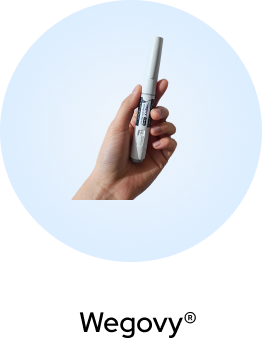While studies have shown that Ozempic can be beneficial to patients, including those with weight-related conditions such as type 2 diabetes, and those looking to lose substantial amounts of weight, there are risks associated too. Its popularity has grown, and social media is abuzz with information and testimonials about its effectiveness.
In this article we’ll cover:
- What Ozempic is and its uses
- The ways in which Ozempic facilitates weight loss
- How long it takes to shed weight on Ozempic
- Frequently asked questions.
Ready to dive in? Let’s explore the content!
What Is Ozempic and What Is it Used for?
Ozempic, a prescription drug produced by Novo Nordisk, was initially designed to control blood glucose levels in adults with type 2 diabetes. Its generic name is semaglutide. It has also been studied in placebo-controlled trials and has been used off-label for weight loss. The doses are administered through injection into a specific site, prompting the pancreas to produce insulin. The FDA has approved it for diabetes treatment, and the medicine has shown benefit in reducing body weight for patients.
Is Ozempic a Type of Insulin?
Ozempic is not insulin. Its active ingredient, semaglutide, is a glucagon-like peptide-1 (GLP-1) receptor agonist, meaning it imitates GLP-1, a hormone naturally present in the body that triggers insulin production. It’s not a stimulant and doesn’t affect blood pressure or cholesterol levels. It helps in maintaining blood glucose levels at a stable level.
How Does Ozempic Cause You to Lose Weight?
Elevated blood sugar leads to glucose storage in your cells, resulting in weight gain and potentially obesity. By reducing blood sugar levels, Ozempic consequently decreases weight gain, enhances weight loss, and lowers the average BMI. It also affects sugar levels in the blood, contributing to overall loss of excess body weight. The appetite-suppressing effects further support weight loss, especially when combined with a balanced meal plan that everyone can follow.
Is Ozempic a Stimulant?
Ozempic is not classified as a stimulant, which typically boosts the body’s nervous system activity. While stimulant drugs are often prescribed for weight loss, Ozempic operates with your insulin production systems, not the central nervous system. It’s not associated with heart attacks or other heart conditions.
How Long Will It Take Me to Lose Weight on Ozempic?
Predicting an exact timeline for weight loss is challenging, as it varies based on individual diet, exercise, metabolism, and lifestyle changes. However, studies indicate that most patients notice effects within a few weeks. The response to the medication can vary, and availability may be affected by a shortage in some markets. clinical trials have provided insights into the typical timelines.
How Long Should I Take Ozempic?
Ozempic injections are administered weekly and don’t permanently modify your insulin production. Continuous use is necessary for sustained effects. It has been deemed safe for long-term use in diabetics, but consultation with a healthcare provider is essential, especially if you have a history of heart disease, stroke, high blood pressure, or cholesterol issues.
A provincial analysis revealed that during the first two months of the year, 15% of Ozempic sales went to U.S. residents, a figure Dix called “worryingly high”, especially when compared to the less-than-half-a-percent average for other prescription products. Amid concerns over potential shortages and the ability to meet the needs of Canadian consumers, the varying Canadian healthcare regulatory bodies aim to ensure reliable access to this crucial medication for its residents.
Is It Safe to Take Ozempic for Weight Loss?
Ozempic hasn’t been officially approved by the HPFB for weight loss, only for diabetes treatment. However, other off-label semaglutide medications like Wegovy have been. Research has shown that a two-milligram dose of semaglutide is generally safe for adults, but there may be risks, especially for those with a history of pancreatitis or thyroid cancer. The fact that it’s used off-label for weight loss should be considered, and insurance may not cover it for non-diabetic purposes.
What are the Side Effects of Ozempic for Weight Loss?
Some patients taking Ozempic or other semaglutide medications have reported side effects, including nausea, vomiting, diarrhea, stomach pain, constipation, and skin changes. Rare but serious side effects include vision changes, pancreatitis, gallbladder issues, allergic reactions, and even cancer in extremely rare cases. Monitoring blood sugar and other levels is essential. For more detailed information, consult your healthcare provider.
Are There Any Foods or Medications I Should Avoid While Taking Ozempic for Weight Loss?
Ozempic may affect the absorption of orally administered medications. Consultation with your medical team is advised, especially if you rely on these medications. Limiting alcohol is recommended, as it can impact blood sugar levels. Certain drugs should not be taken with Ozempic due to potential serious interactions.
You can check your medication against Ozempic here, but always talk to a medical professional before stopping or starting any medication.
Key Takeaways
Ozempic can contribute to weight loss but is primarily prescribed for type-2 diabetes. Other semaglutide medications can be used for weight loss. These drugs are not a permanent solution but can be an effective weight-management tool. The most sustainable and safe way to lose weight is gradual, aiming for around 2 lbs a week, with or without Ozempic, and in conjunction with lifestyle measures. Always consult with medical professionals for personalized advice based on your health condition and reasons for seeking weight loss.
Ozempic for Weight Loss FAQs
Is it good for people to take Ozempic for weight loss?
Ozempic is not officially recognized as a weight loss drug, but similar medications can assist with long-term weight management in some cases.
How much weight can I lose in a month after taking Ozempic?
Weight loss with Ozempic varies, but one clinical study reported participants losing about one kilogram a month on a semaglutide treatment program.
How quickly will Ozempic help me lose weight?
Weight loss rate with Ozempic is inconsistent across individuals, but generally, it has been observed that weight loss commences after a few weeks of medication use. It should be taken with caution, considering any existing conditions and in consultation with medical professionals, who can provide advice and services tailored to individual needs.
Sources

Finasteride Vs Minoxidil Vs Hello Hair Solutions | Jack Health
Want to read more about this section? Valuable information and resources are available with your Finasteride DIN. What is a DIN? ⓘ It is easy




Does Minoxidil Work for a Receding Hairline? Before and After Results
While results can vary, many users have seen positive changes, including thicker hair and even some regrowth in the frontal area. Consistency is key to achieving the best outcomes. In this article, we’ll explore how Minoxidil works for a receding hairline and showcase before and after results.




How to Use Latanoprost Results and Side Effects
Topical Latanoprost is prescribed by dermatologists and can be obtained from a local or online pharmacy.
Compounding pharmacies can create custom Latanoprost for individual dosing and combine it with other medications, such as Minoxidil.


















 (US)
(US)



